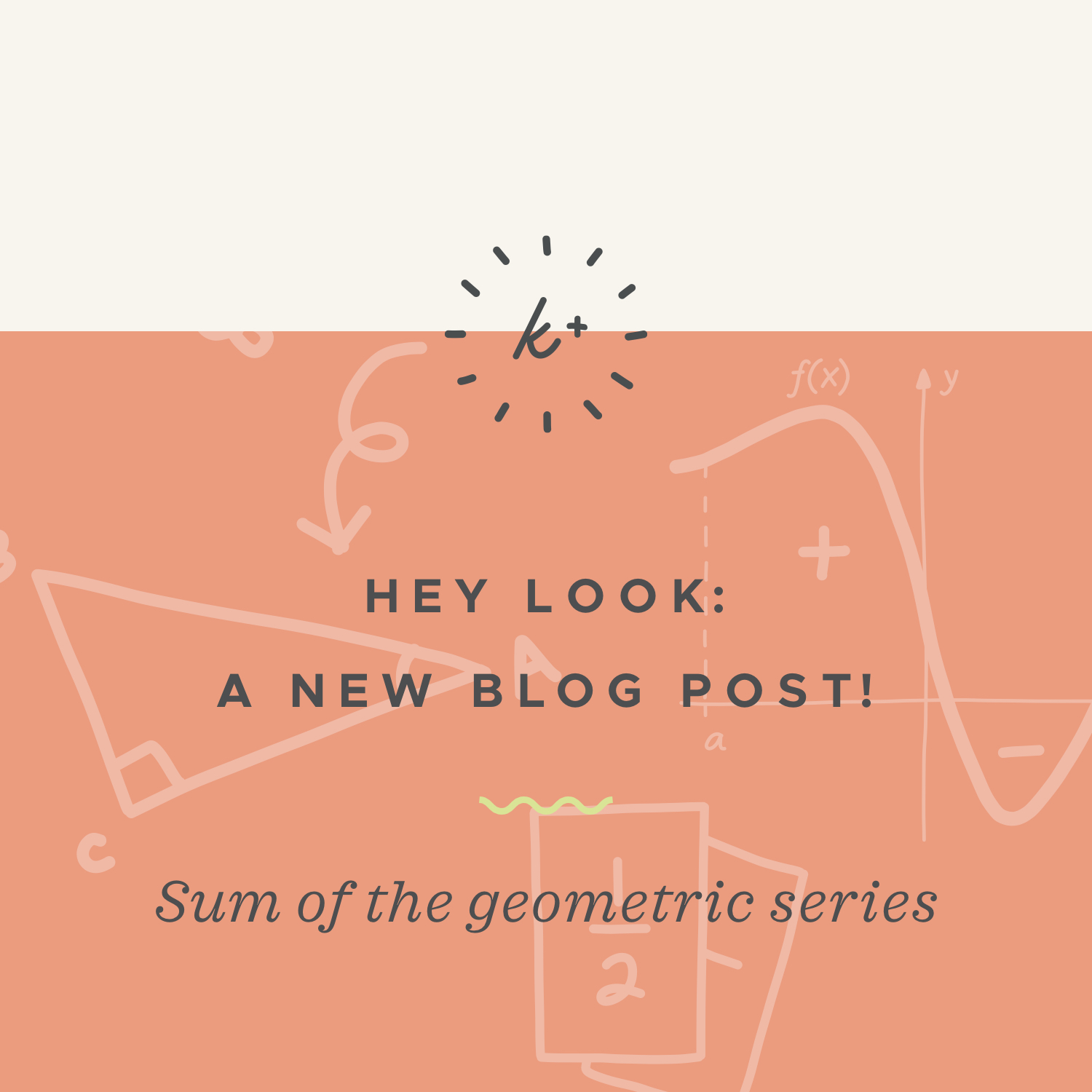How to find the sum of a geometric series
When a geometric series converges
We already know from the last section that the standard form of a geometric series is
???\sum^{\infty}_{n=1}ar^{n-1}???
or
???\sum^{\infty}_{n=0}ar^n???
Hi! I'm krista.
I create online courses to help you rock your math class. Read more.
Given either of these forms, the geometric series test for convergence says that
if ???|r|<1??? then the series converges
if ???|r|\ge1??? then the series diverges
When a geometric series converges, we can find its sum.
Sum of a geometric series
We can use the values of ???a??? and ???r??? and the formula for the sum of a geometric series
???\sum^{\infty}_{n=1}ar^{n-1}=\frac{a}{1-r}???
or
???\sum^{\infty}_{n=0}ar^n=\frac{a}{1-r}???
to find the sum of the geometric series.
Finding the sum of a geometric series
Take the course
Want to learn more about Calculus 2? I have a step-by-step course for that. :)
Calculating the sum of a geometric series
Example
Calculate the sum of the geometric series.
???\sum^{\infty}_{n=0}\frac{2^{n-1}}{3^n}???
We showed in the last section that this series was geometric by rewriting it as
???\sum^{\infty}_{n=0}\frac{2^{n-1}}{3^n}???
???\sum^{\infty}_{n=0}\frac{2^n2^{-1}}{3^n}???
???\sum^{\infty}_{n=0}2^{-1}\left(\frac{2^n}{3^n}\right)???
???\sum^{\infty}_{n=0}\frac12\left(\frac23\right)^n???
Now that we have the series in the right form, we can say
???\sum^{\infty}_{n=0}ar^n=\sum^{\infty}_{n=0}\frac12\left(\frac23\right)^n??? where
???a=\frac12???
???r=\frac23???
Since the sum of a geometric series is given by
???\sum^{\infty}_{n=0}ar^n=\frac{a}{1-r}???
we can say that the sum is
???\sum^{\infty}_{n=0}\frac12\left(\frac23\right)^n=\frac{\frac12}{1-\frac23}???
???\frac{\frac12}{\frac33-\frac23}???
???\frac{\frac12}{\frac13}???
???\frac12\cdot\frac31???
???\frac32???
Only if a Geometric series converges will we be able to find its sum.
We could have also found the sum by expanding the series through its first few terms and identifying values for ???a??? and ???r???.
???\sum^{\infty}_{n=0}\frac12\left(\frac23\right)^n=\frac12\left[\left(\frac23\right)^0+\left(\frac23\right)^1+\left(\frac23\right)^2+\left(\frac23\right)^3+...\right]???
???\sum^{\infty}_{n=0}\frac12\left(\frac23\right)^n=\frac12\left(1+\frac23+\frac49+\frac8{27}+...\right)???
So
???a=\frac12???
???r=\frac23???
and
???\sum^{\infty}_{n=0}\frac12\left(\frac23\right)^n=\frac{\frac12}{1-\frac23}???
???\frac{\frac12}{\frac33-\frac23}???
???\frac{\frac12}{\frac13}???
???\frac12\cdot\frac31???
???\frac32???






